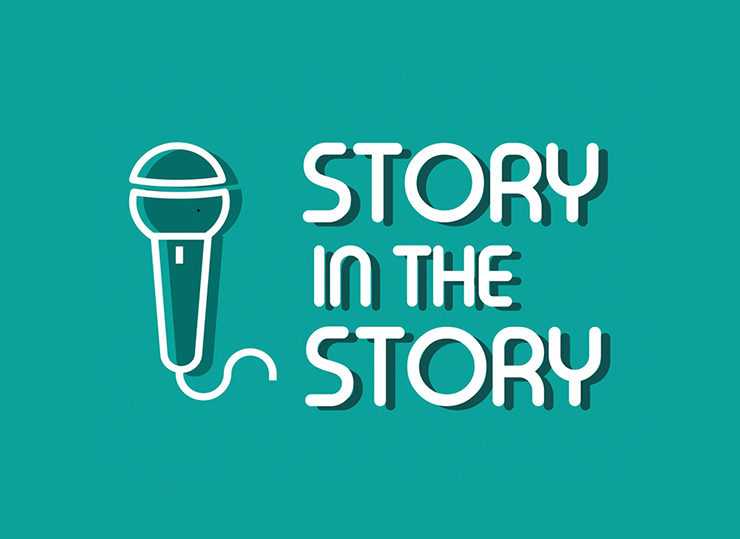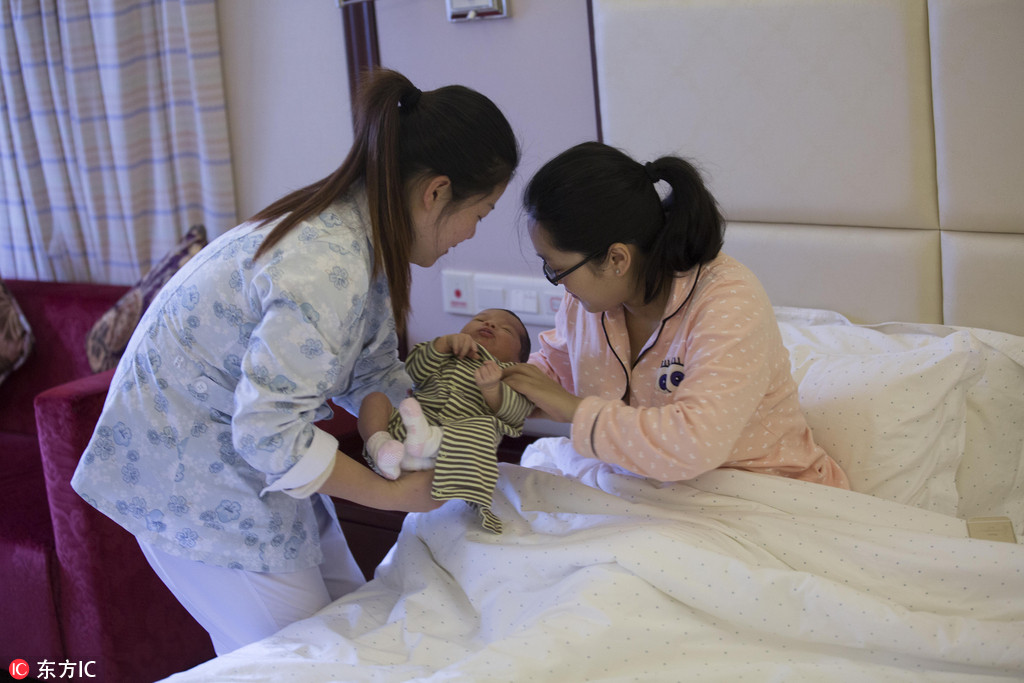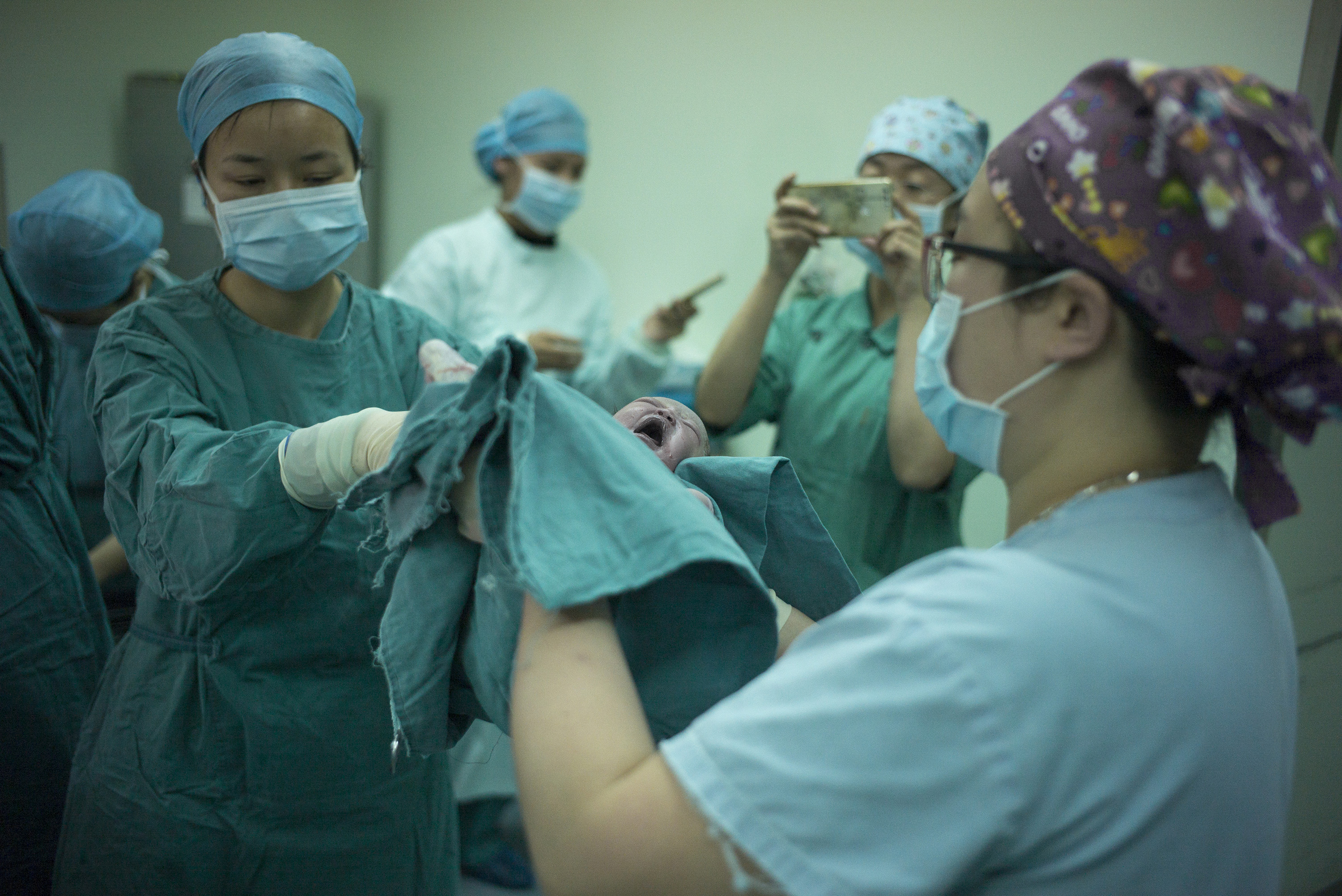
Jinxiufang, a shopping street in Shanghai's Pudong District, got a new set of decorations for World Mental Health day in October.
Mao Wan and many new moms from her weaving group spent months knitting cute animals, clouds and waves to decorate the shopping area.
Mao, a 30-year-old mother of two, suffered postpartum depression after she had her first child in 2015.
Following the birth, Mao had difficulty accepting the scar from her cesarean section. Meanwhile, pain during breastfeeding and high fever constantly bothered her, and urinary incontinence made her afraid to go outside.
All this changed because of a small ball of wool left a few years ago. Mao found herself a new goal: to weave a small hat and a few pairs of shoes for her baby.
Today’s Story in the Story looks at the transition from the Chinese traditional custom of zuo yue zi, or "postpartum confinement" to modern postpartum rehabilitation.

New mothers need not only attention and support from the family, but also professional help in maternity, rehabilitation and nutrition. [Photo/IC]
"At the time, everyone was focused on the newborn baby, and because of the Chinese tradition of postpartum confinement, I hadn't washed my hair in a month, which made me feel dirty and gloomy," Mao said.
Overcome by these feelings, she would burst into tears at the drop of a hat. Because of anxiety and depression, she was even reluctant to look after her baby when he cried.
"I posted the photo of the baby hat on social media, and it got me so much praise from my friends. I felt that I had finally done something valuable," Mao said.
She then created a social network account to share her work and weaving skills, as well as parenting stories and insights. Now, Mao has set up three weaving enthusiast groups with about 1,000 members, most of whom are young moms hoping to ease anxiety and pressure through weaving.
At the end of 2018, Mao copied the idea of "woven graffiti" from her overseas counterparts to attract more attention to the mental health behind the women's weaving works. Mao and her group members crocheted the 500-meter-long iron railings in Jinxiufang with colorful wool and dolls.
Her postpartum depression experience helped make the first street show a success and more new moms suffering from the disease came to join her.
"I not only share my knitting skills, but also ask them about their working and living conditions and whether they have talked with their families, and recommend seeking a psychologist for serious symptoms," Mao said.
New moms in China are becoming increasingly vulnerable to postpartum depression, but the new moms, their families, and society often pay insufficient attention to postpartum psychological health.
Most women's reproductive age coincides with the peak of their careers and re-adapting to society after birth often leads to pressure and anxiety, said Guan Yutong, a psychological counselor in Beijing.
Meanwhile, Chinese women often experience a significant gap in prenatal and postnatal attention received, which can also lead to postpartum depression, said Guan.
"The good news is that more and more women are paying attention to their mental health and fighting postpartum depression also requires family efforts," Guan said.

(Photo: Xinhua)
"Women undergo significant physical changes and mood swings due to fluctuating hormone levels during pregnancy and childbirth," said Qin Xinyan, chief medical officer of United Family Healthcare's postpartum rehabilitation sector.
"New mothers need attention and support from family, but they also need professional help in maternity, rehabilitation and nutrition, among many other things."
China should promote science-based postpartum rehabilitation practices, because the traditional practices cannot fully meet the needs of women, and some practices are even unhealthy, Qin said.
Restoring their physical strength, improving breastfeeding and reducing postpartum pain and discomfort are among the top three reasons why women seek postpartum care, and more than 40 percent of women who were asked said they feel "depressed" and "irritated" mainly because of the lack of care and support from family.
Chen Ziquan, president of the Child Maternal and Child Health Association, said science-based postpartum rehabilitation is different from traditional customs, and healthcare facilities that have specialized equipment and medical professionals who work in accordance with a strict code of conduct can better ensure quality care for new mothers and newborns.
(Produced by Nancy Yan Xu, Brian Lowe, Lance Crayon and Da Hang. Music by: bensound.com. Text from Xinhua, China Daily)


